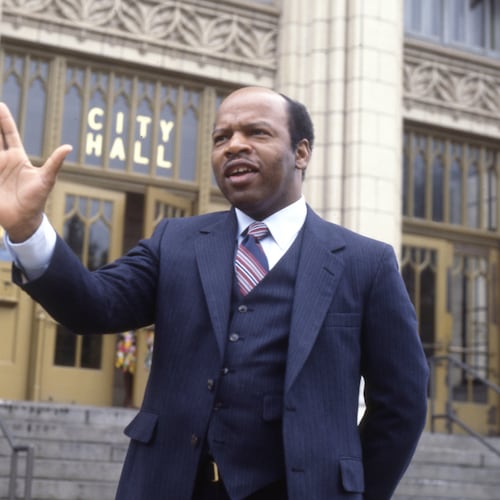Today, the world will say goodbye to late Congressman John Lewis for the last time. Front and center will be one of his most fierce and well-known admirers, former President Barack Obama.
The 44th president of the United States is slated to deliver the eulogy at the late congressman’s final Celebration of Life during the 11 a.m. service at Ebenezer Baptist Church. The much-anticipated display of reverence as onlookers via livestream and present during the service will likely serve as a definitive moment on the final memorial day of six for Lewis, who died at age 80 on July 17.
The two men come from vastly different worlds, with Lewis growing up on his family’s humble farm in Pike County, Alabama, and Obama, spending his childhood across the country, including in Hawaii, with his grandparents.
Still, like many who studied or observed Lewis’ fervent speeches and valiant efforts in civil rights, Obama has admitted in interviews over the years that he felt closely connected to and inspired by Lewis’ work. Upon his inauguration in 2009, many outlets reported the poignant words the freshman president wrote on the program of the seasoned legislator. He signed Lewis’ program with the words “Because of you, John.”
Credit: File photo / Associated Press
Credit: File photo / Associated Press
Those words dated back to about two decades prior. While on break from Harvard Law School, a young, hopeful Obama carried around a copy of Taylor Branch’s “Parting the Waters,” according to an account by the New Yorker. The trilogy covered Martin Luther King Jr.‘s rise to civil rights icon and the folks who were instrumental in that rise, including Lewis. Around that time, he so happened to meet Lewis when he confirmed the pedestal he had placed the diminutive-physically, but massive-figuratively icon on.
Credit: Carolyn Kaster
Credit: Carolyn Kaster
“I first met John when I was in law school, and I told him then that he was one of my heroes. Years later, when I was elected a U.S. senator, I told him that I stood on his shoulders.”
Once he became president, Obama recalled the radical speaker who championed getting into “good trouble” congratulating him on the unbelievable feat of becoming the first Black president.
“Congratulations, Mr. President,” Lewis whispered in his ear.
Obama smiled at the sound of that and said, “Thank you, John. I’ll need your prayers.”
“You’ll have them, Mr. President. That, and all my support.”
Of that day, Lewis described the young Black president’s election as “bewildering.”
“It is almost too much, too emotional,” he said at the time. Preaching at the Shiloh Baptist Church on Ninth Street N.W., Lewis had told parishioners that he would have thought that only a “crazy” person would predict the election of a Black president in his lifetime. He told listeners at the time that the “saints and angels,” including Harriet Tubman and Carter G. Woodson, Marcus Garvey and W. E. B. Du Bois, Nat Turner and Frederick Douglass, John Brown and Sojourner Truth, would also be in awe.
Before Obama’s election, Lewis, a longtime colleague and friend of the Clintons, rooted for former Sen. Hilary Clinton to grab the Democratic nomination for president in 2008. However, on the day of Obama’s inauguration, Lewis saw a sight that spoke to just why Obama deserved to take office.
“Barack has lifted people,” Lewis said, as he posed for pictures with some women from D.C. “Old people, young people, children, black and white. Look out on the Mall here. You can see it in their walk, can’t you?”
In his statements about Lewis’ passing earlier this month, the former president eloquently explained just why he wrote the note on the congressman’s program that January day.
“In so many ways, John’s life was exceptional. But he never believed that what he did was more than any citizen of this country might do. He believed that in all of us, there exists the capacity for great courage, a longing to do what’s right, a willingness to love all people, and to extend to them their God-given rights to dignity and respect. And it’s because he saw the best in all of us that he will continue, even in his passing, to serve as a beacon in that long journey toward a more perfect union.”
About the Author
The Latest
Featured



